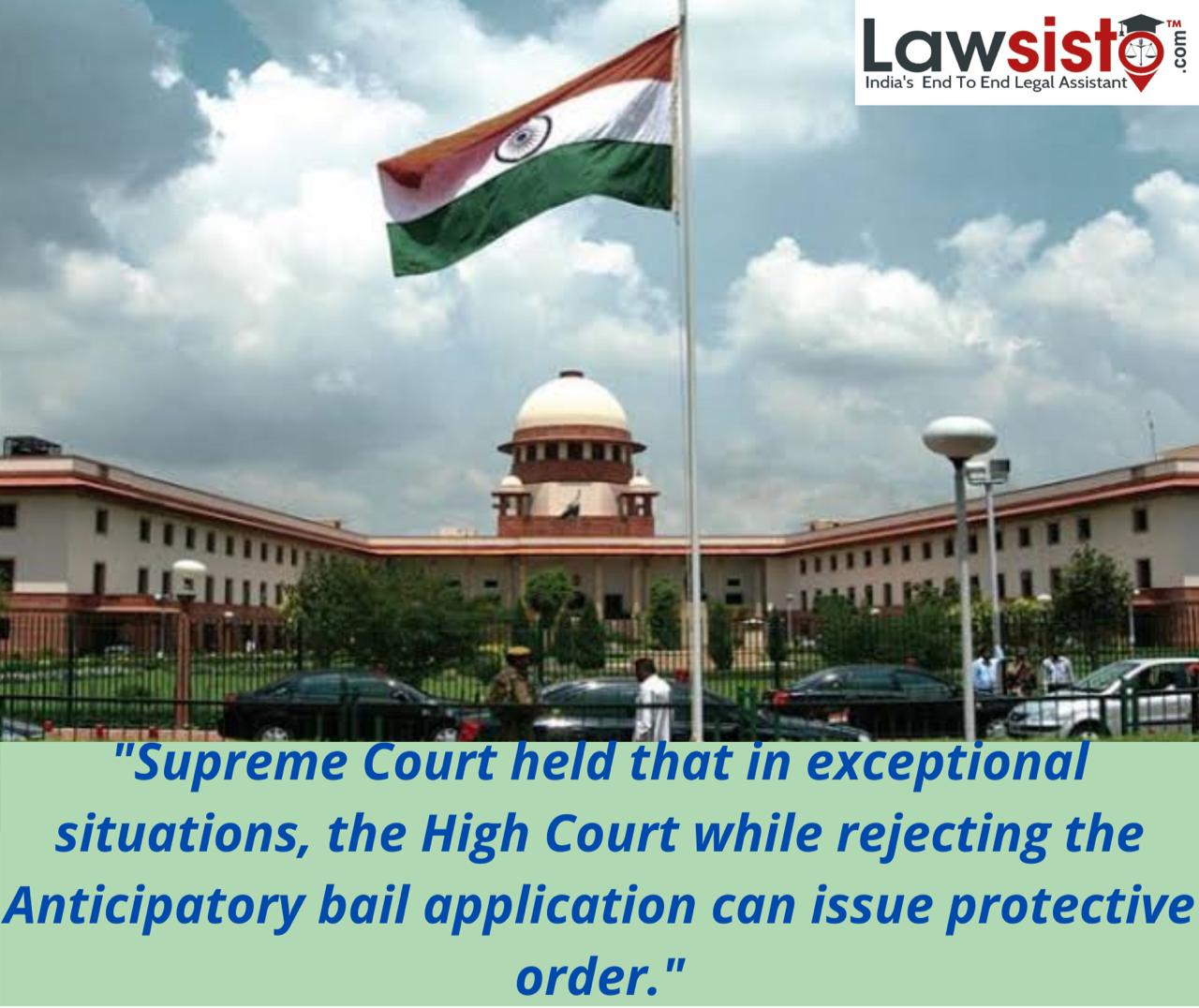Latest News
Supreme Court held that in exceptional situations, the High Court while rejecting the Anticipatory bail application can issue protective order.

The Supreme Court on May 28 in the Case - Nathu Singh vs. State of Uttar Pradesh read and defined the Section 438 of Code of Criminal Procedure, 1973 which talks about the Anticipatory Bail by High Court or Session Court. It held that court should not blindly grant protection to anyone from the arrest for a particular time period where there are no reasons or cause for anticipatory bail is made out.
The bench comprising of Chief Justice N.V. Ramana and Justices Surya Kant and Aniruddha Bose said that the court’s unconditional power cannot be exercised in an untrammeled manner.
Chief Justice N.V. Ramana held that the courts are granting the protection from arrest to accused for such long period of 90 days where no reasons of anticipatory bail were made out.
Facts of the case:
In the above-mentioned case, the High Court while rejecting the anticipatory bail application of the accused, granting 90 days to surrender before the Trial Court to seek a regular bail. The disheartened complainant challenged this order in the apex court contending that the Section 438 of Cr. P.C. does not give exclusive power to the court and does not contemplate to grant any protection on the discharge of the application filed by an accused also proviso of the section 438(1) of Cr.PC defines that on the rejection of the application of anticipatory bail, the accused should be arrest.
Judgment of the Apex Court:
To clarify the contention of the complainant the comprising bench referred to the Section 438 of Cr.PC and said that the power in section 438 of Cr.PC “must be read liberally as it had a direct relation with the article 21 of the Constitution.” It means that a court may not normally grant the protection from arrest where no specific ground of anticipatory bail was made out.
The court further observed that Section 482 of Cr.PC gives the exclusive and inherent power to the High Courts to “issue the relief to an applicant after dismissing their Anticipatory Bail.” i.e., the extraordinary power -that in some exceptional situation the High Court can protect the accused from arrest by passing a reasonable and clarified order.
The Supreme Court gave the following reasons to justify itself for setting aside the order which was passed by the Allahabad High Court where the assured was granted protection from arrest for 90 days even after the application of anticipatory bail was rejected:
- First, rejecting the anticipatory bail application of the accused on the basis of the nature and gravity of the offence, the aforementioned court granted the relief to the accused from the arrest without giving a valid justification or reason.
- Secondly, the relief granted by the High Court to accused for a term of 90 days and court has not considered the concerns of the investigation agency or the proviso of the section 438(1) of Cr.PC which gives the exceptional power to the court to protect the accused from arrest but for the shortest period if it’s reasonably required.
The Apex Court held that the 90 days or 3 months in any circumstances cannot be considered as reasonable not even in the current case. Hence, the court set aside the protective relief granted by the Allahabad High Court to the accused.
Document:



































































































